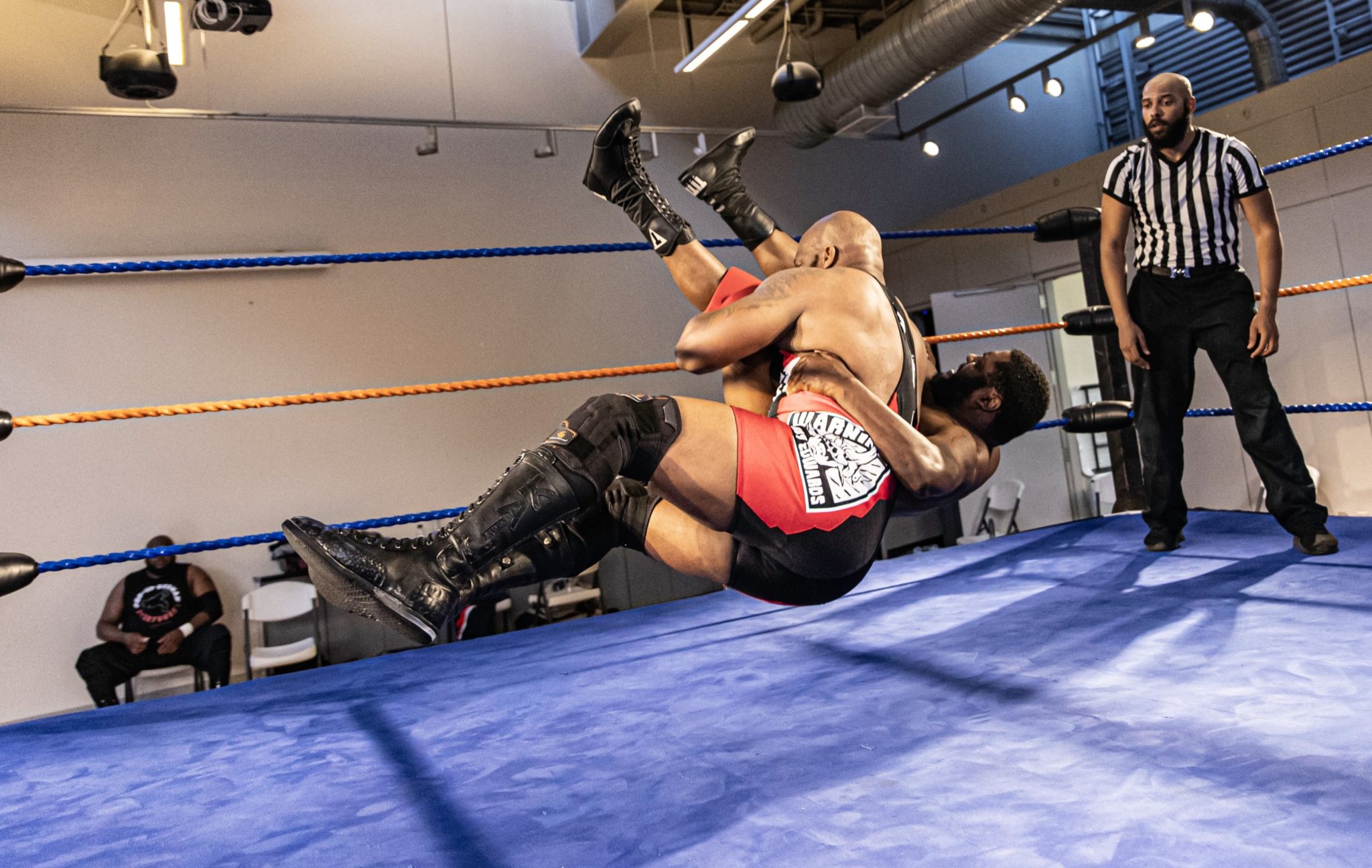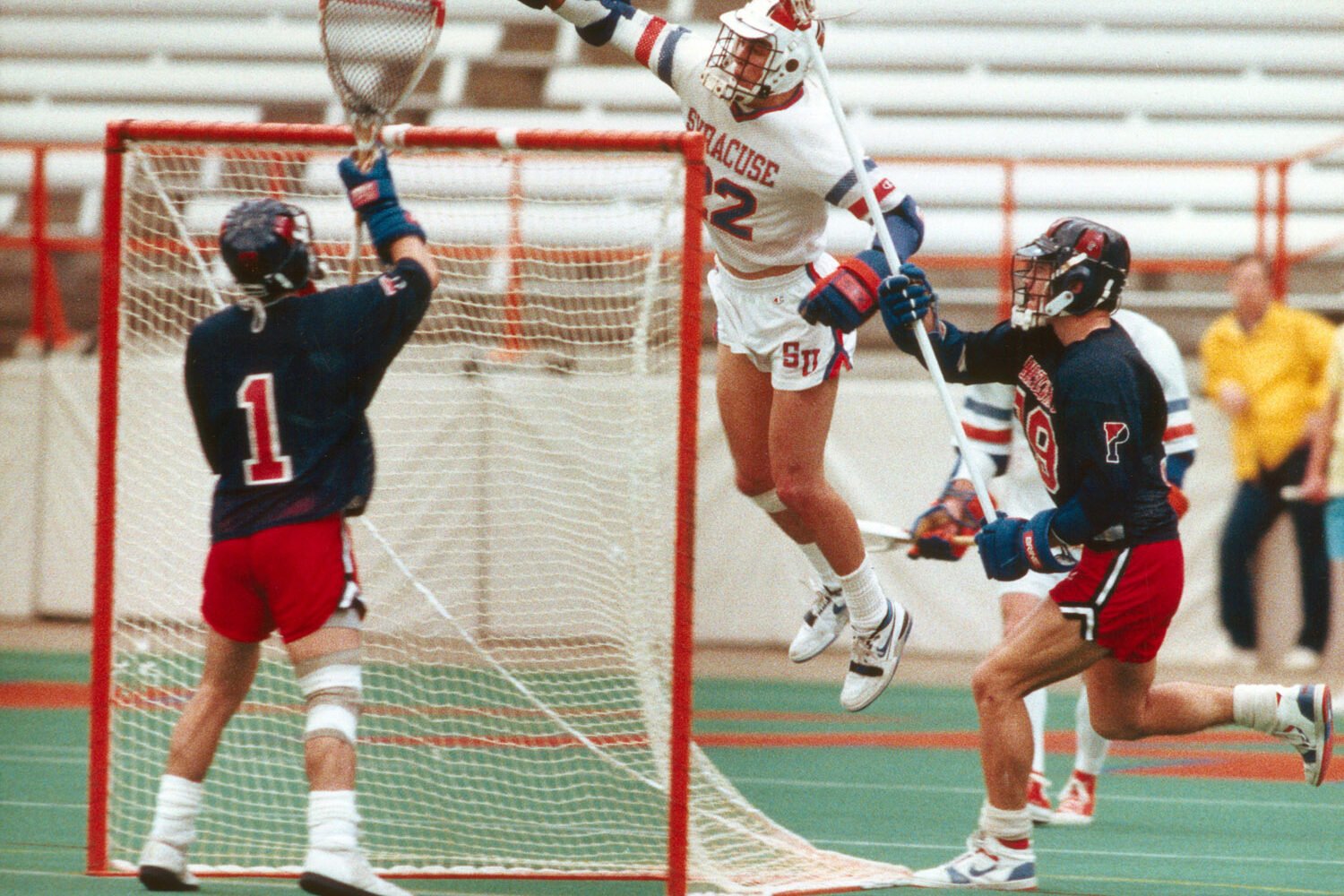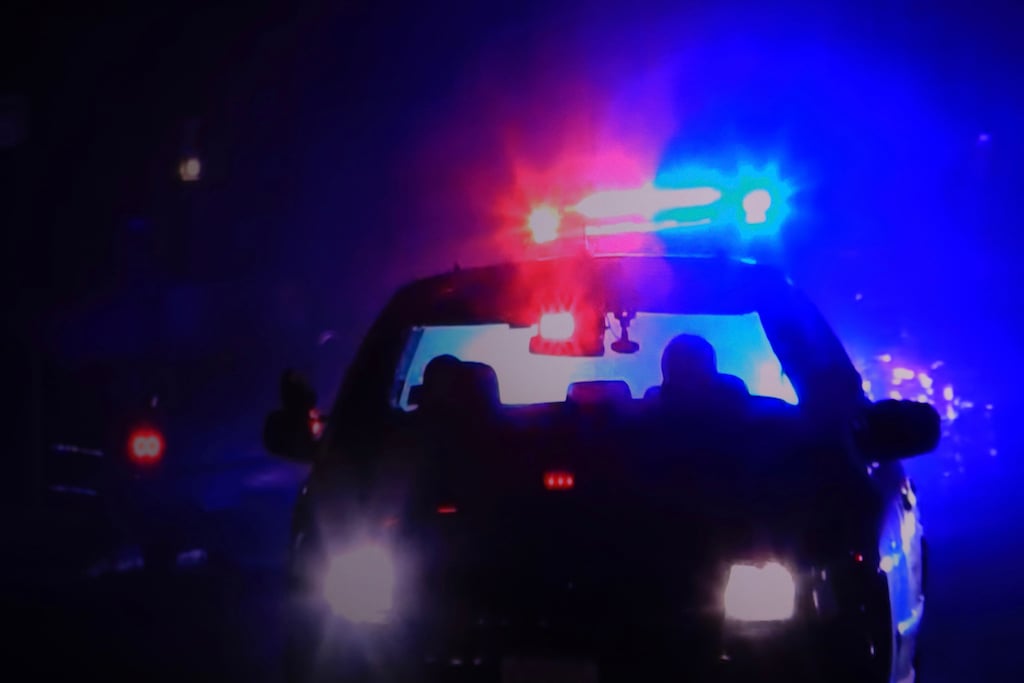Indie professional wrestling is making a comeback in the District—and this time it’s Blacker than ever. F1ght Club Pro Wrestling returned to the in-person ring after two years with a series of battles at DC Brau on Sunday with a show that was their biggest yet.
The event, titled “In Grapitol We Trust,” brought together local wrestling promotions and 24 wrestlers from the self-dubbed “Grapitol Region” to battle one another. But the show was also meant to show unity among these companies, despite the indie pro-wrestling community being competitive. “[DC] is a hotbed for professional wrestling,” F1ght Club Pro co-founder Chris Harris says. “Instead of trying to steal tickets from one another, we can just work together and figure out a way to promote in the way the talent produces.”
The show drew more than 400 people—some who had been awaiting indie pro wrestling’s return to the city, and others who were just intrigued by the concept of people throwing one another around in a brewery. Regardless of why people showed up to the event, this was their biggest crowd to date. Harris describes seeing the success the promotion had gained over the past few years as an out-of-body experience: “The energy for that show and those people were something that I had never experienced before,” he says. “I could feel how excited the city was for wrestling to be back.”
F1ght Club Pro started off humbly when Harris and Jonathan “Jonny Xross” Martin launched the promotion in 2019. The duo were frustrated with the lack of Black and LGBTQ+ representation in the wrestling community, so they decided to figure out a way to create a space for wrestlers from marginalized communities who feel like they aren’t given the same opportunities as white or straight wrestlers. Their solution was to create championships that would create more buzz for Black professional wrestlers: the Pan Afrikan World Diaspora Championship (PAWDC, which Jonny Xross actually created a few months before F1ght Club) and the Chocolate City Championship.
F1ght Club Pro’s first show only drew about 20 people in October 2019, but their next show, the following February, brought in more than 160. That night was also a monumental moment for local wrestlers Trish Adora and Billy Dixon, who were crowned the Pan Afrikan World Diaspora Champion and Chocolate City Champion, respectively. “I’ve been able to take this championship around the country in different states, defend it against a variety of opponents, and create a legacy of a title from scratch,” Dixon said.
Then came the pandemic. F1ght Club Pro fought hard to not lose their momentum. They started taping a series of shows—a mixture of slam poetry, music videos, and wrestling matches—that viewers could stream online on indie wrestling streaming site Independent Wrestling TV. The goal all along was to elevate talent that had a hard time breaking through in the larger wrestling world. “Black talent were not getting the prominent roles that other talent would, regardless of how popular they were with the crowd or how good they were in the ring,” Harris says. “They would be ancillary talent that just wouldn’t be able to main event shows, be champions, or just have the same prominence that their white counterparts would.”
Dixon was one person who had a rough entry into the wrestling community. As an openly gay Black man, he faced homelessness and homophobia while training in wrestling school as a starry-eyed 20 year-old. But, he says, the tide is changing: “It’s weird because we’re in the middle of this uprising of visible queer talents that are in the major companies and being trained with dignity and respect.” He won a match during the pandemic and successfully defended his title against his rival O’Shay “Big Bad Kaiju” Edwards on Sunday. Now, Dixon will face off against Adora for the PAWDC title in June.
“For those people to trust us and spend the money that they did to see the product that we were giving them signifies to me that, not only were they ready for wrestling, but they were ready for us to come back and provide that wrestling for them,” Harris says. “I definitely think it kicked off the F1ght Club era.”

















